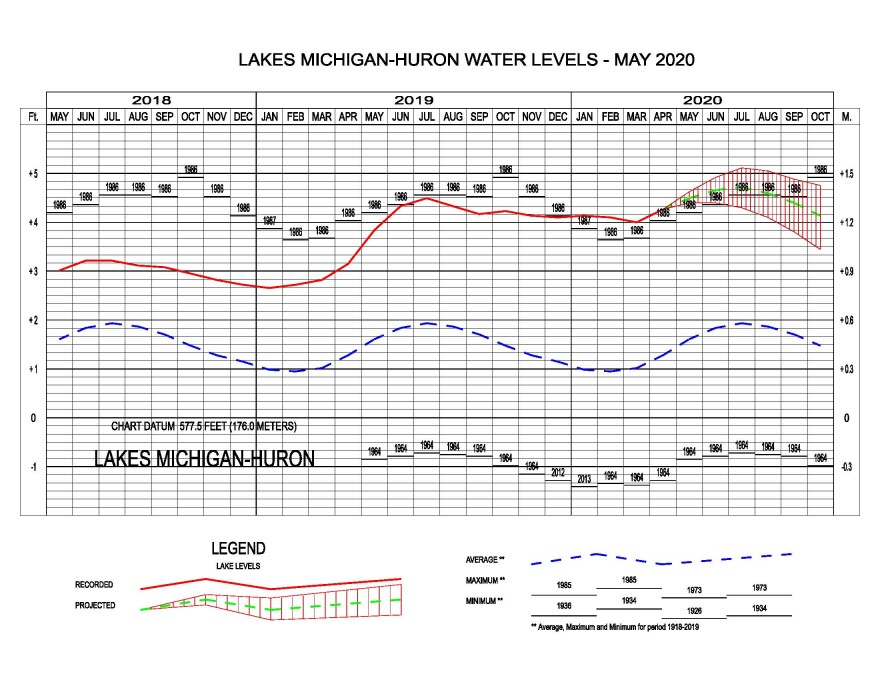It’s the unofficial start of summer, and life on Michigan’s lakeshore will be different this year.
High water levels on the Great Lakes mean there’s less beachfront this year. At the same time, the pandemic means there’s more need for space.
“Something we’ve been trying to do is encourage the public to just use more of the available options,” says Brian Dissette, city manager of South Haven.
Dissette says the city has seven public beaches available, though visitors often crowd the most popular beach, South Beach.
He says the city is prepared to enforce social distancing rules on the beach if large crowds gather, though he says the first goal will just be to educate people who are gathered too closely together.
Earlier this year, the parking lot at Grand Haven State Park had to close because of crowds.

Many of the usually bustling businesses along the lakeshore remain closed because of the pandemic. For cities, that will mean lower revenue at a time when they’re facing increased costs because of the persistently high water.
In South Haven, the city expects to pay $1.75 million this summer to repair a marina that’s been underwater.
Dissette says the city operates four marinas, and usually brings in about $1 million a year from them.
“The North Marina is the most profitable, it’s the most attractive, it’s the most sought-after,” Dissette says. “And having to shut that down for the season is definitely a disappointment.”
Three other marinas remain open, and Dissette says there’s hope the North Marina can reopen by the end of the boating season.
The city of Grand Haven is also spending money to repair a marina because of high water.
The Lake Michigan-Lake Huron system has been at record high levels every month so far this year, according to the U.S. Army Corps of Engineers. And with recent rains, water levels are expected to continue to be at or above record levels for much of the summer. Lake St. Clair and Lake Erie have also broken records this year.




